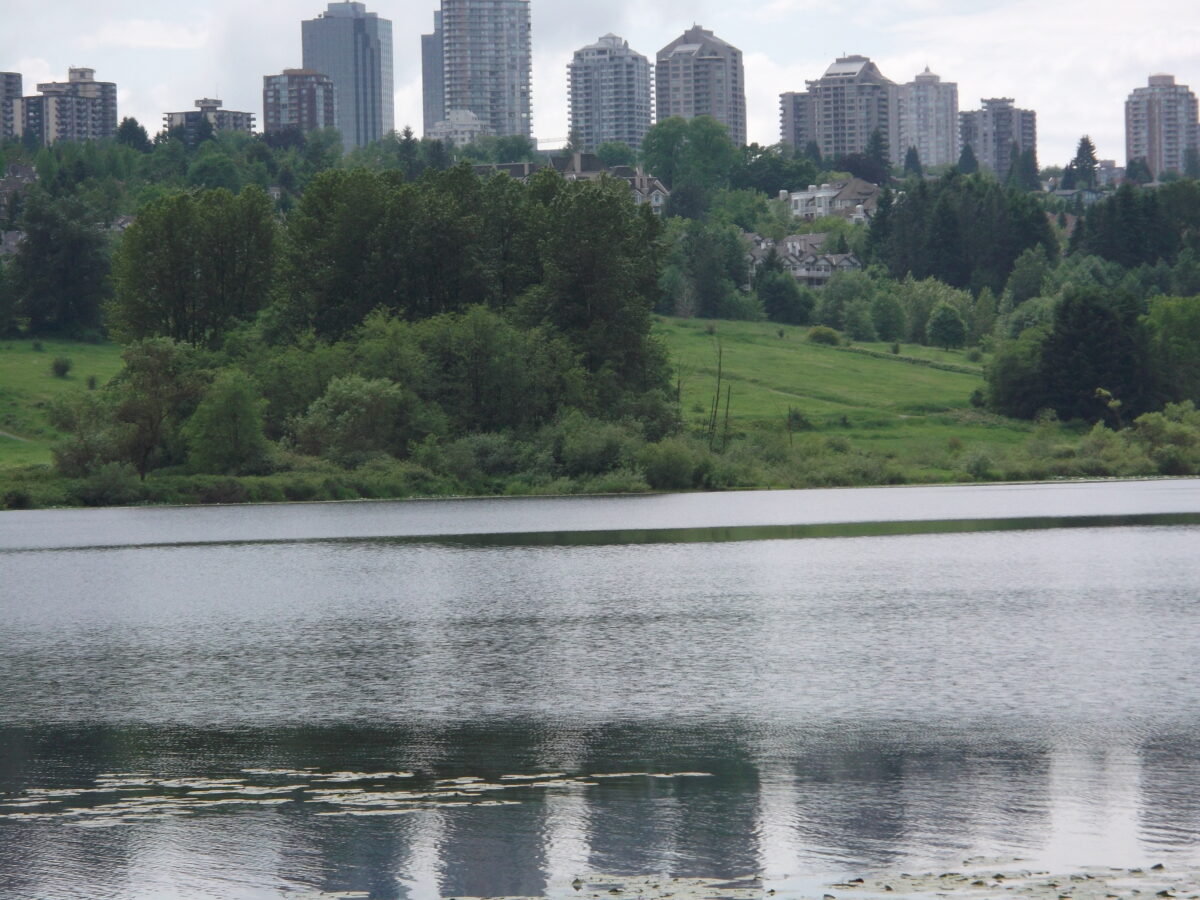I’ve heard this idea expressed by numerous people, critics and writers especially, and it makes sense. However, to understand what it means to “write what you know,” I have to look at my experiences and then examine what I write to see what the connection really is. And that brings up some interesting insights and viewpoints on writing.
What strikes me immediately when I look at my fiction and the places I’ve been that get into my stories is the way the places get transformed. They’re not used literally at all; that is, they’re not used as they are. The sense of place is moulded to the story. It’s not simply lifted from nature and plopped down wherever needed.
Let me give you an example from my first novel. I’d been writing for a couple of hours one morning and wanted a break, so I drove out of my temporary home in Vancouver, took Canada Way to a small street called Deer Lake Drive. Two blocks in, Deer Lake Park opens up and I pulled into the small parking lot. I walked to the water’s edge and sat, drinking in the solitude the lake and its surroundings presented. That sense of solitude seemed to permeate the very air and I luxuriated in it as I watched the Vancouver skyline hover over the lush green park. The quiet, the smell, the visual tranquility were astounding. It was suddenly broken by a pair of motorcyclists on large Harleys roaring into the lot.
At that time in my story I needed some place for Harry, my protagonist, to wait for Sabina as she did her stuff. As I resumed writing, Deer Park fit the bill. I used it all, even the two Hell’s Angels, but saw everything through Harry’s mind.
The description was accurate enough, but it’s the pastoral nature of the setting that gets to him, not the solitude, not even the lake. He spent his time looking at the meadows on the far side and the apartment towers that framed the view. The park for Harry became a contrast to the business of the stroll and east-end traffic. I used it not only as somewhere for Harry to wait, but also as a juxtaposed setting to balance my story. It gave me a chance to emphasize that contrast, the wasteland of the city versus the gardenlike park, before the action of my story resumed. I’ll have more to write about that wasteland-garden pattern later.
Vision is a very strong element. It provides the story’s setting, but we must remember that the setting is tempered by whoever the narrator is since it’s seen through his or her eyes.
What about our other senses: hearing, touch, smell? They’re a part of “what you know” as well. In this case, touch wasn’t needed, nor was any olfactory sensation, but hearing got in through birds’ chatter, the low hum of the city’s background, and sudden noisy intrusion of the motorcycles as a way to kill Harry’s feelings and jolt him back into his situation.
Hearing, touch, smell are all of use to a writer in a story, but seeing surely predominates since setting is such an important way to establish mood, to introduce how a character feels.
The senses, though, are only part of the story. There’s also “what you know” in that vast reservoir of stuff in your head, that heap of experiences and their emotional colourations. How does a writer use all that?
The best I can do here is to tell you what happens in a section of my third novel. I invented a town to use and a landscape based on a lot of childhood memories from my time in northern Ontario. My parents used to drop me off at a local farm each summer once our two-week vacation was over, and I’d spend the next couple of months with the family.
In my story, I needed a location, somewhere with a root cellar, one of those old ones with a dirt floor. Since I invented the area I’m writing about, I had to draw on childhood memories for setting and details, especially for the root cellar. I used my memories of a farm about a mile away from where I was staying as a boy. I used all of it, the house, the barn, and the pastures. But I had it all going to ruin, abandoned by the old farmer and his wife, ignored by their children. That gave me what I needed. Without those summer memories, I’d have had nothing to draw on. Writer’s build on what they know, just as I built on the working farm I knew about from my childhood, changing it, altering the mood, adding bits like the root cellar.
I learned rather quickly that I had to keep moving, keep filling up the space inside my head with material I could use. I discovered that I didn’t have to concentrate, didn’t have to take walks looking for story material. That never worked. I just had to go places. I’d be driving on a road somewhere and I’d turn just to see what was there. Keep looking. Fill the space in your head. Let things seep into memory.

